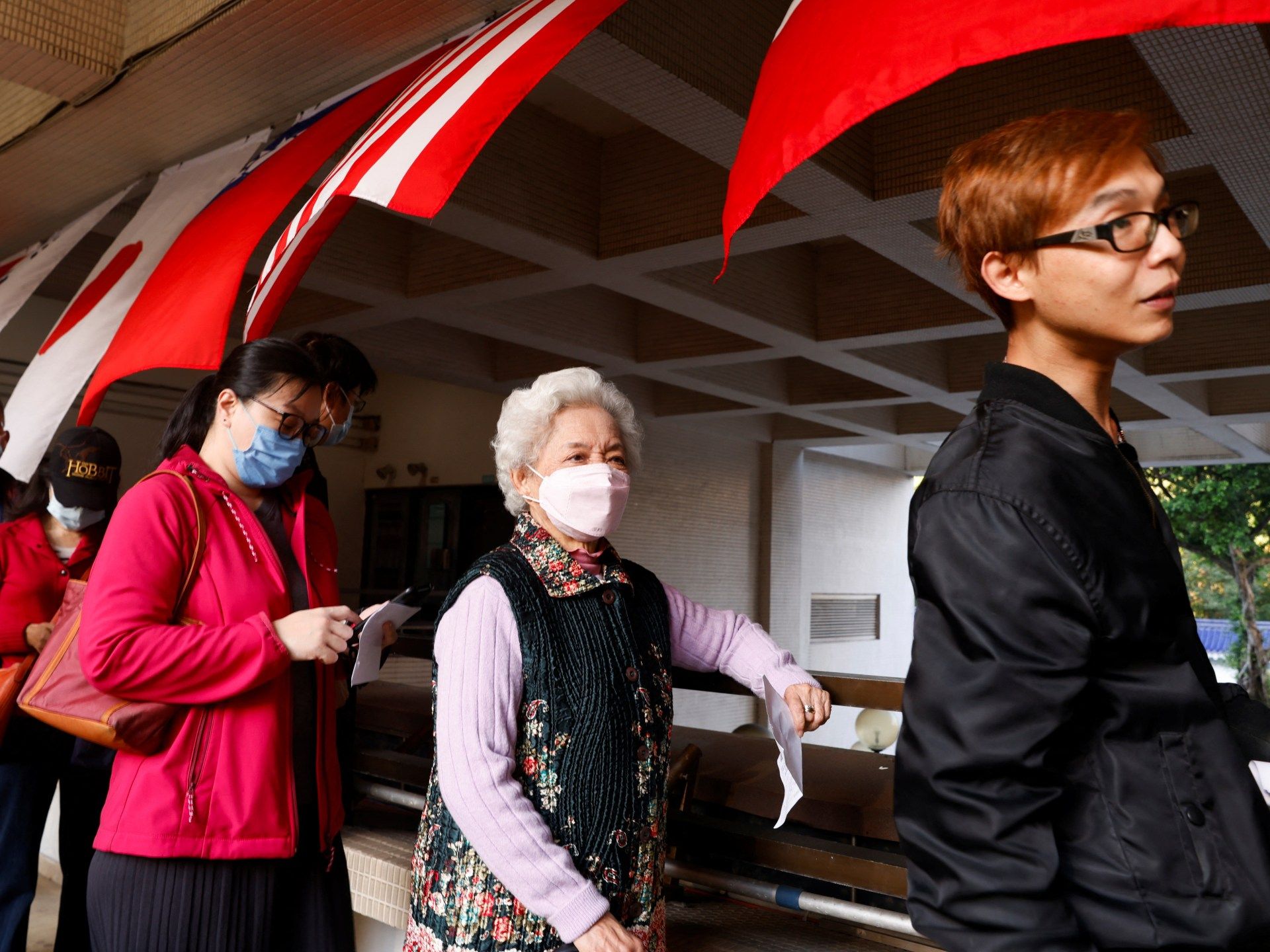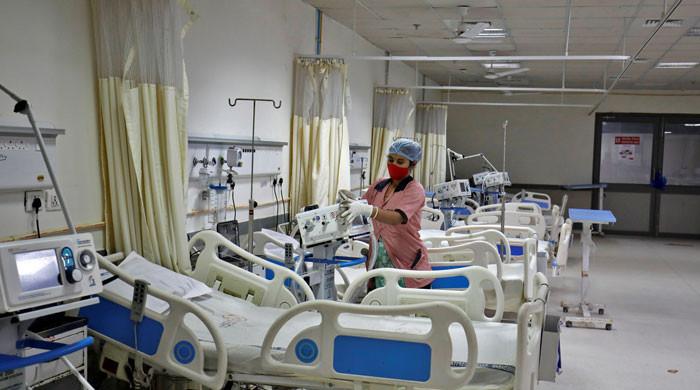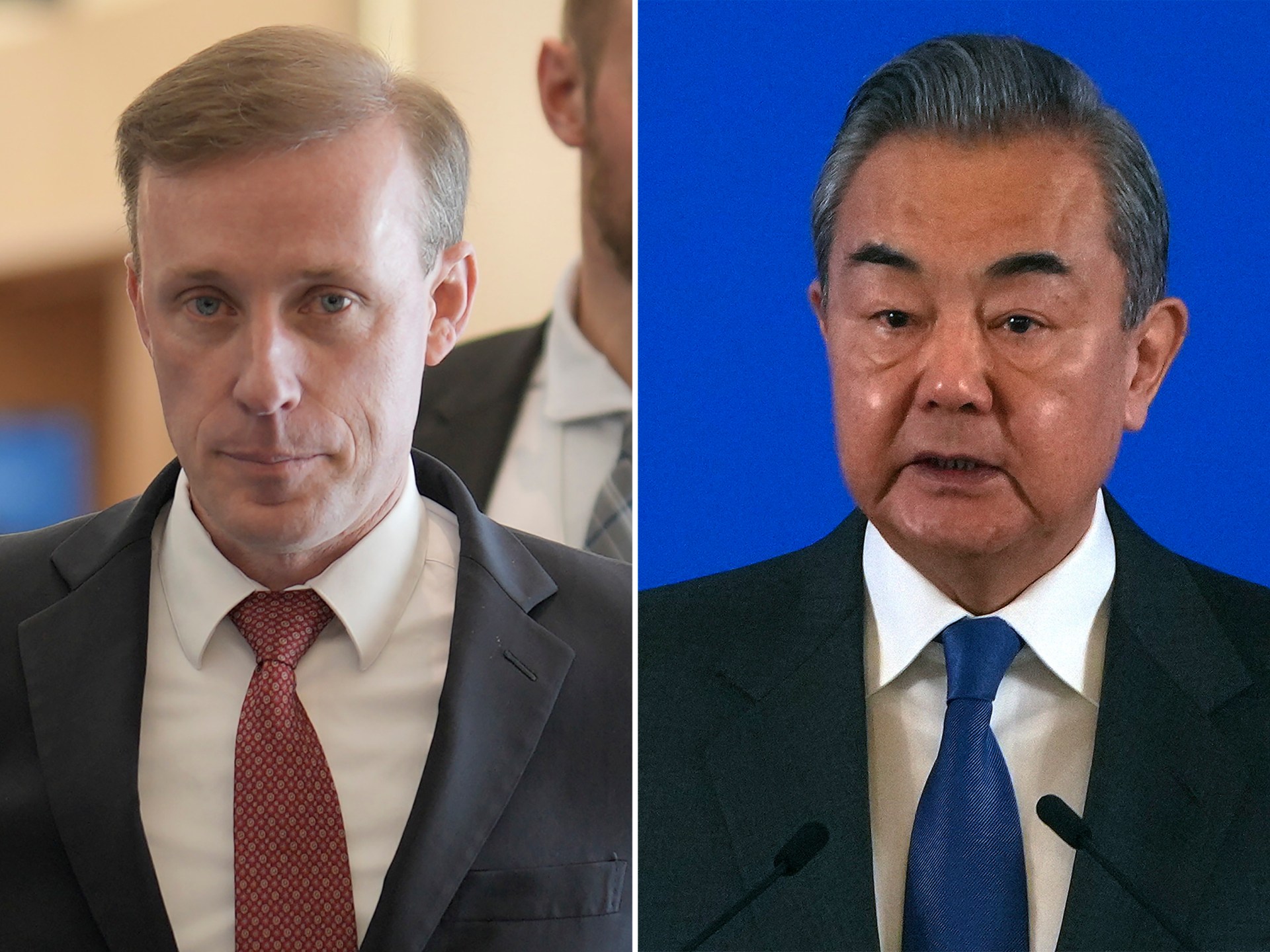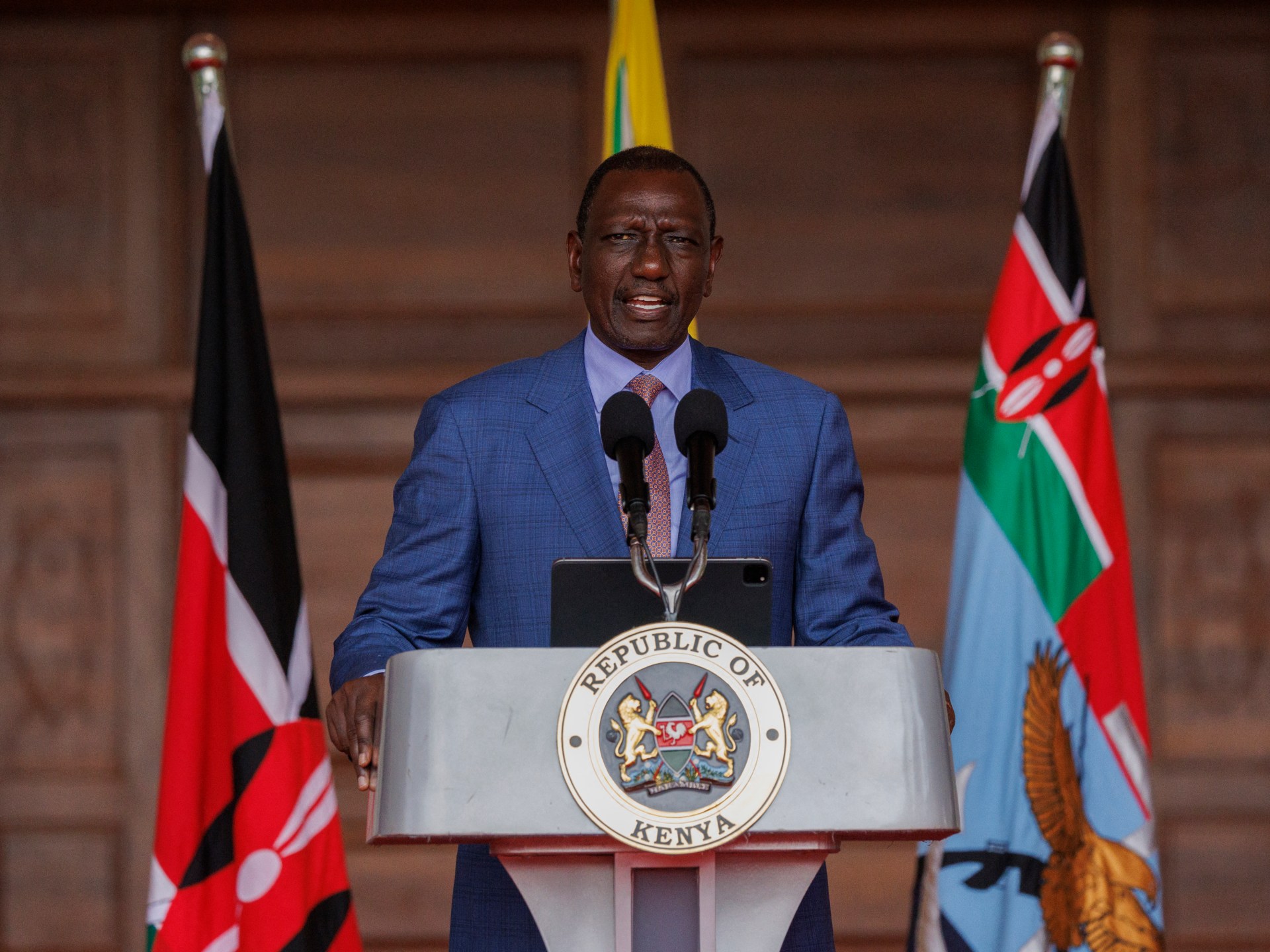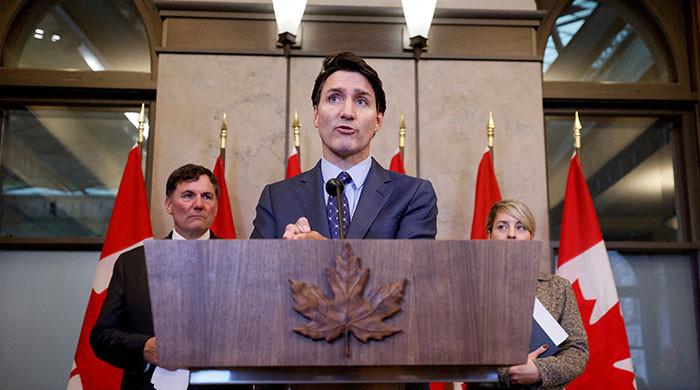Taipei, Taiwan – Voters have cast their votes in Taiwan's closely watched presidential and parliamentary elections, with the first results expected to be announced later on Saturday.
The presidential vote is a surprising three-way race between incumbent Vice President William Lai Ching-te of the ruling Democratic Progressive Party (DPP); former New Taipei City Mayor Hou Yu-ih of the more conservative Kuomintang (KMT); and third-party candidate Ko Wen-je of the Taiwan People's Party.
What is at stake is the future direction of Taiwan's democracy: a continued push for the DPP to have a higher international profile as a de facto independent state; closing ties with China but potentially better economic relations, as the KMT promised; or an untested but new third way between both parties, as the TPP promises.
Also at stake is the composition of Taiwan's 113-member unicameral legislature, voted on a geographic constituency basis and a second list based on a party's vote share. Six seats are reserved for indigenous Taiwanese.
In the last election, the DPP achieved a legislative majority, but this time its victory is far from certain thanks to competition from the KMT and TPP in many local elections.
Some 19.5 million people aged 20 and older were eligible to vote and voter turnout is expected to be high based on public transportation data.
Taiwanese must return to their home registration location (usually their hometown) to vote in person, meaning the run-up to the election can be a busy time for rail service across the island.
On Friday, the Taiwan Railway Administration predicted a record sale of 758,000 tickets, higher than any previous election.
It was a surprising turnaround in what has been a relatively lackluster campaign season focused on domestic issues, according to Brian Hioe, a frequent commentator on Taiwanese politics and founder of New Bloom magazine.
“Shortly before, train ticket sales were not going so well and there was a sudden spike,” he said. “I think it shows how quickly things can change in Taiwanese politics.”
“Often, before the elections themselves, a feeling of national doom is suddenly created. Suddenly, people worry about what will happen if X candidate is elected or if a turnout at a rally seems higher than expected,” Hioe also said. “That makes people mobilize.”
Hioe said two key events may have scared some voters this week into voting. The first was the massive turnout of 350,000 people on Friday at a rally for third party candidate Ko, showing voters that he was a real contender despite his party's relative inexperience.
The second was comments made this week by former president and KMT member Ma Ying-jeou that Taiwan should trust Chinese President Xi Jinping.
Although Ma has long retired from the presidency, he still carries weight within his party and some voters may be alarmed by his influence over KMT candidate Hou, Hioe said.
Many Taiwanese distrust Beijing, which claims Taiwan is a province, and want their democracy to maintain de facto independence.
Beijing often relies on a combination of “carrot and stick” strategies to try to attract voters and also scare them into voting for their preferred candidates at election time (usually anyone other than the DPP).
Voters told Al Jazeera that the polls had been busy since they opened early on Saturday.
Taipei resident Jason Wang said his plan to get to the polls early with his wife and daughter was slightly delayed by a surprisingly long and diverse line until 8 a.m.
“It wasn't older people, which was surprising. There were a lot of young couples, and I mean people spending Friday night partying,” she said.
Guava Lai, a young PDP supporter in his 20s, said his social media was full of panicked messages from friends on Friday night saying candidate Ko might win.
“My friends were pretty anxious, especially the night before. To put it in context, most of my friends would vote for the DPP… and then they would see the news on Friday that Ko Wen-je had so many people and Hou Yu-ih had so many people,” he said. “That was the vibe I saw on my social media, people anxious and also trying to calm each other down.”
The DPP has been in power for the past eight years under President Tsai Ing-wen.
In a regular election, Taiwan's two main parties, the KMT and the DPP, should change power, but Ko has altered the normal trajectory.
The outspoken former mayor of Taipei has been popular with younger voters who say they want something new from the old two-party system.
They include Nicky, 25, who told Al Jazeera he had voted for Ko as he left a primary school polling station in Taipei on Saturday. Refusing to use his full name, she said she liked Ko's record as mayor and his positive attitude and easier speaking style.
“He was mayor of Taipei for eight years,” he said. “He can really get things done and solve problems. That's what you want.” His friends felt the same, he added.
Nicky wasn't sure about Ko's chances of winning, as most older voters prefer Taiwan's two traditional parties, but she still wanted to show her support.
“I think it's time for a change,” he said.
Ross Feingold, a Taipei-based lawyer and political analyst, echoed some of their concerns.
He stressed that some voters were concerned about issues other than China, including transparency in public office.
“Like other countries, there are recurring problems of corruption and nepotism under the leadership of different political parties in Taiwan, and I think voters here want to know that the person who will lead them for the next four years is an honest man. he told Al Jazeera.

